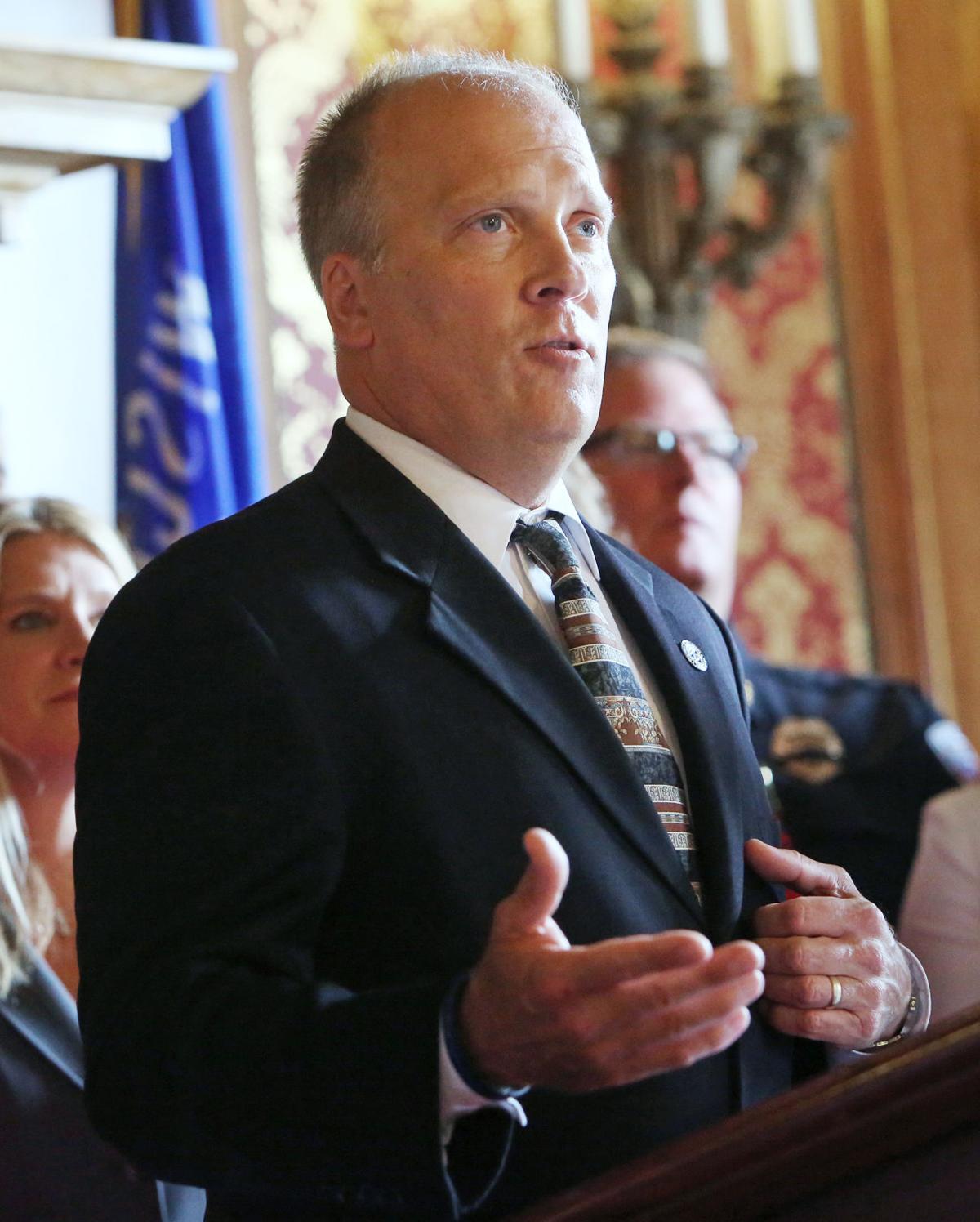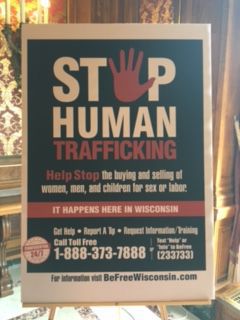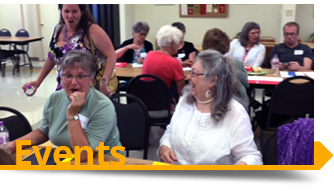
State leaders Thursday unveiled a new poster created as part of a statewide campaign that organizers hope will raise public awareness about human trafficking, generate tips to break up networks and get resources to victims.
“This is a crisis hiding in plain sight,” Wisconsin Attorney General Brad Schimel said during a news conference at the Capitol also attended by state lawmakers, law enforcement and other partner agencies and nonprofits.

“This is servitude. This is modern-day slavery, and we can’t tolerate it,” Schimel added.
Creation of the poster, promoting a national human trafficking resource center hotline number, was required by the passage last year of Wisconsin Act 5, legislation aimed at strengthening the state’s response to the buying and selling of men, women and children for sex or labor.
The legislation was sponsored by Rep. Amy Loudenbeck, R-Clinton, and Sen. Jerry Petrowski, R-Marathon. Also speaking about the need for the campaign Thursday were retiring State Patrol Superintendent Stephen Fitzgerald and Rep. Jessie Rodriguez, R-Oak Creek, who noted the “covert nature of the crime makes it difficult to detect.”
Loudenbeck said the hotline number will be answered by experts trained to connect victims with needed services at the Polaris Project, a nonprofit organization based in Washington, D.C., that has operated the National Human Trafficking Resource Center Hotline since 2007. Tips about trafficking are routed back to the law enforcement agencies in the respective states, Loudenbeck said.

That kind of information can be crucial, given the difficulty of prosecuting complex trafficking networks, officials said.
“I’ve never seen cases so challenging,” said Schimel, whose office has been pushing for more training for police, prosecutors, judges and service providers statewide. “It’s going to take all of us working together.”
Schimel also is encouraging public officials and business owners, especially in the hospitality and service industries, to download at no cost and display the poster, available in both English and Spanish and in several sizes, from an informational state websiteBeFreeWisconsin.com.
“We need the public to be eyes and ears for us,” he said.



